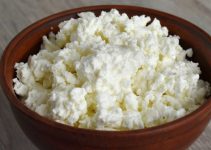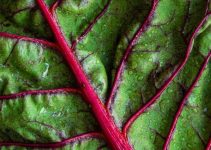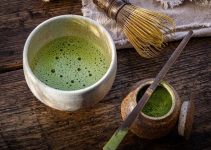Fiber is an essential nutrient. It is responsible for feeding healthy bacteria in the intestine, which prevents various diseases.
In addition, some types of fiber promote weight loss, prevent constipation, and regulate blood sugar levels.
According to the Academy of Nutrition and Dietetics, consuming around 14 grams of fiber for every 1000 calories consumed daily is recommended.
In the US, the problem is that 95% of people do not meet the recommended consumption levels.
In this article, you will find information about high-fiber foods so that you can incorporate them into your diet.
What is Fiber?
Fibers are those carbohydrates that the body cannot digest.
Dietary fiber provides these health benefits:
- Reduces the risk of gastrointestinal cancer.
- It adds bulk to the digestive tract.
- Reduce cholesterol.
- Promotes blood sugar control.
- Stimulates weight loss.
1. Pears (3.1 Grams)

Pears are one of the primary sources of fiber.
In fact, a portion of 100 grams gives us 3.1 grams of fiber.
2. Strawberries (2 Grams)

Strawberries are beneficial because they are high in vitamin C, manganese, and antioxidants. They are also rich in fiber.
100 grams of strawberries provides 2 grams of fiber.
3. Avocado (6.7 Grams)

Avocados provide us with healthy fats. In addition, they are a rich source of vitamins B, C, and E, potassium, and magnesium.
Regarding its fiber content, 100 grams of avocado provide 6.7 grams of fiber.
4. Apples (2.4 Grams)

Apples provide a feeling of fullness for longer because they have a large amount of fiber.
100 grams of apple provides 2.4 grams of fiber.
5. Raspberries (6.5 Grams)

In addition to being high in vitamin C and manganese, raspberries are also a rich source of fiber.
In fact, 100 grams of raspberries provides 6.5 grams of fiber.
6. Bananas (2.6 Grams)

Bananas provide us with vitamin C, vitamin B6, and potassium.
100 grams of banana provides 2.6 grams of fiber.
7. Carrots (2.8 Grams)

Carrots are very nutritious because they provide vitamins A, B6, and K.
In addition, 100 grams of carrot provides us with 2.8 grams of fiber.
8. Beets (2.8 Grams)

Beets are a rich source of iron, copper, folate, potassium, and manganese.
In addition, beets contain inorganic nitrates, which are beneficial for regulating blood pressure.
100 grams of beets provides us with 2.8 grams of fiber.
9. Broccoli (2.6 Grams)

Broccoli is a superfood because it provides vitamins B, C, and K, potassium, iron, manganese, and many antioxidants.
100 grams of broccoli gives us 2.6 grams of fiber.
10. Artichoke (5.4 Grams)

Artichoke is one of the primary sources of fiber when it comes to vegetables.
This is so because 100 grams of artichoke provides 5.4 grams of fiber.
11. Brussels Sprouts (3.8 Grams)

Brussels sprouts are also very nutritious. They provide vitamin K, folate, potassium, and antioxidants.
Regarding its fiber content, 100 grams of Brussels sprouts provide 3.7 grams of fiber.
12. Lentils (7.3 Grams)

Lentils provide us with a large amount of protein and fiber.
In a 100-gram serving of lentils, there are 7.3 grams of fiber.
13. Kidney Beans (6.8 Grams)

Like the rest of the legumes, kidney beans provide us with protein and fiber.
100 grams of kidney beans contain 6.8 grams of fiber.
14. Split Peas (8.3 Grams)

Split peas are made from dried and peeled pea seeds.
Its fiber content is high: 100 grams of split peas provide 8.3 grams of fiber.
15. Chickpeas (7 Grams)

Chickpeas are also rich in fiber. In fact, 100 grams of chickpeas provide 7.6 grams of fat.
Other legumes high in fiber are:
- Cooked lime beans: 7 grams.
- Cooked black beans: 8.7 grams.
- Baked beans: 5.5 grams.
- Cooked edamame: 5.2 grams.
16. Quinoa (2.8 Grams)

Quinoa provides us with various nutrients such as magnesium, potassium, iron, zinc, and proteins.
In addition, 100 grams of quinoa contains 2.8 grams of fiber.
17. Oats (10.1 Grams)

Oats provide us with a soluble fiber called beta-glucan that helps regulate cholesterol and blood sugar levels.
In addition, 100 grams of oats provide us with 10.1 grams of fiber.
18. Popcorn (14.4 Grams)
Popcorn is a good snack because it provides a lot of fiber.
In a 100 gram serving of popcorn, there are 14.4 grams of fiber.
19. Almonds (13.3 Grams)

Almonds contain various nutrients such as vitamin E, manganese, magnesium, and healthy fats.
In addition, 100 grams of almonds provide 13.3 grams of fiber.
20. Chia Seeds (34.4 Grams)

In addition to providing fiber, chia seeds are rich in phosphorus, magnesium, and calcium.
A portion of 100 grams of chia seeds provides us with 34.4 grams of fiber.
21. Sweet Potatoes (2.5 Grams)

Sweet potatoes are also beneficial because they provide minerals, vitamins, and beta-carotene.
In addition, a serving of 100 grams of sweet potato provides 2.5 grams of fiber.
22. Dark Chocolate (10.9 Grams)

In addition to being delicious, dark chocolate has multiple health benefits.
A 100 gram serving of dark chocolate provides 10.9 grams of fiber.





